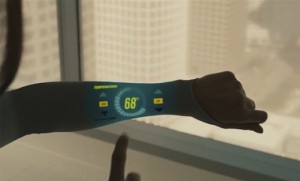 There will come the point shortly when these five forces — mobile, social media, data, sensors (internet of things), and location, as Robert Scoble and Shel Israel call them in their book “Age of Context” will transform student affairs. As with every technology, the applications of these technologies have negative and positive consequences. Privacy is undoubtedly at the forefront of concerns. For example, this article concerns proposed legislation on cell phone tracking in retail stores. Consider these probable scenarios:
There will come the point shortly when these five forces — mobile, social media, data, sensors (internet of things), and location, as Robert Scoble and Shel Israel call them in their book “Age of Context” will transform student affairs. As with every technology, the applications of these technologies have negative and positive consequences. Privacy is undoubtedly at the forefront of concerns. For example, this article concerns proposed legislation on cell phone tracking in retail stores. Consider these probable scenarios:
– A student walks into a building, let’s say career services, and is presented with information based on their location. This information could be done using a combination of wireless sensors like iBeacon by Apple and a student’s mobile device. This is a concept called geo-fencing. To further extend this idea, more personalized information could be relayed to the student’s mobile device based on personally identifiable information (PII) emitted by their mobile device or the identification card they carry. The student would have granted the transmission and availability of these PII.
– A student living on campus feels ill, so they go to the student health center. This self-quantifier student, has a gadget on his wrist, like a more advanced Fitbit, that monitors and records their activities and body functions, including heartbeat, blood pressure, etc. This info is stored in the cloud. With the student’s permission, the physician accesses the student’s records and electronic records from the student’s physician(s) to diagnose the cause of the illness and determine further actions.
– An online student logs on to a website. The system automatically retrieves information about this student from university and third-party systems, including academic, personal, mental, and physical health, financial, and extra-curricular activities. It does a complex analysis of these related data and provides a holistic picture of this student. Based on patterns observed with other students with the same profile, the system presents personalized information to the student, including suggested actions to take. In addition, the technique could also alert an advisor, which prompts the student for a virtual advising session.
How likely are these scenarios above going to happen? I can’t predict the future, but I think, given where technology is today, I sense that these scenarios could happen sooner than later.
What are your thoughts on the possible scenarios above? Do you think they’re conceivable? What are the issues involved?
photo credit: http://iq.intel.com/iq/33226615/the-quantifiable-self-wearable-computers-mean-more-reliable-data
4 Trackbacks / Pingbacks for this entry
April 3rd, 2014 on 7:09 am
[…] academia and follow consumer technology trends. I’ve written a couple of blog posts about possible scenarios in the near future of student affairs using technologies I mentioned above. This blog post and this also talks about how I think wearable […]
September 8th, 2014 on 8:37 am
[…] a place for me to explore my future. In sharing my vision of student affairs like this post or this and this, I inevitably begin to think about the directions my wife and I would like to pursue. I […]
April 11th, 2015 on 10:18 am
[…] is made available towards more effective student development,learning, and success. Can you imagine the possibility I wrote about in this […]
October 16th, 2015 on 12:37 am
[…] including social media, cloud, mobile, wearable computing, and Internet of Things. I wrote on this blog post how these technologies can all work together in student […]